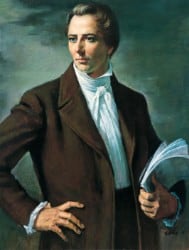
“A religion that does not require the sacrifice of all things never has power sufficient to produce the faith necessary [to lead] unto life and salvation.”
| Lectures on Faith, p. 58.

“A religion that does not require the sacrifice of all things never has power sufficient to produce the faith necessary [to lead] unto life and salvation.”
| Lectures on Faith, p. 58.

| “A Joseph Smith for the Twenty-First Century”
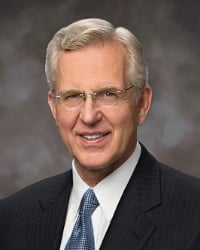
“Divine covenants make strong Christians. I urge each one to qualify for and receive all the priesthood ordinances you can and then faithfully keep the promises you have made by covenant. In times of distress, let your covenants be paramount and let your obedience be exact. Then you can ask in faith, nothing wavering, according to your need, and God will answer. He will sustain you as you work and watch. In His own time and way He will stretch forth his hand to you, saying, “Here am I.”
| “The Power of Covenants,” Ensign, May 2009, p. 22
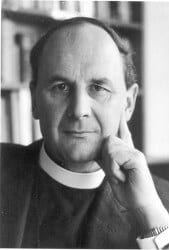
“Christianity, inasmuch as it is the confession of Jesus of Nazareth as the living and powerfully effective Christ, begins at Easter. Without Easter there is no Gospel . . . no faith, no proclamation, no Church, no worship, no mission.”
| “Resurrection in the NT,” The Interpreter’s Dictionary of the Bible, ed. G. A. Buttrick, et al. (Nashville: Abingdon, 1962–76), 4:43.
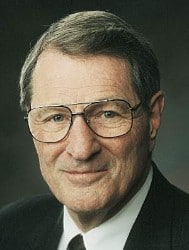
“This is a gospel of great expectations, but God’s grace is sufficient for each of us if we remember that there are no instant Christians.”

“Christianity stands or falls with the reality of the raising of Jesus from the dead by God.”
| Theology of Hope (New York: Harper & Row, 1967), 165.

“If I esteem mankind to be in error, shall I bear them down? No. I will lift them up, and in their own way too, if I cannot persuade them my way is better; and I will not seek to compel any man to believe as I do, only by the force of reasoning, for truth will cut its own way. Do you believe in Jesus Christ and the Gospel of salvation which he revealed? So do I. Christians should cease wrangling and contending with each other, and cultivate the principles of union and friendship in their midst
| Joseph Smith, History of the Church, 5:499.
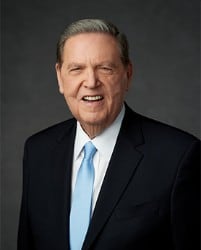
“In this long eternal quest to be more like our Savior, may we try to be “perfect” men and women in at least this one way now-by offending not in word, or more positively put, by speaking with a new tongue, the tongue of angels. Our words, like our deeds, should be filled with faith and hope and charity, the three great Christian imperatives so desperately needed in the world today.”
| "The Tongue of Angels", Ensign, May 2007, 16–18
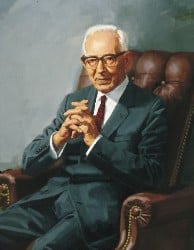
“Charity, or love, is the greatest principle in existence. If we can lend a helping hand to the oppressed, if we can aid those who are despondent and in sorrow, if we can uplift and ameliorate the condition of mankind, it is our mission to do it, it is an essential part of our religion to do it.”
| Conference Report, April, 1918, p. 4